Electric hydraulic valves are electronically controlled valves that regulate the flow of hydraulic fluid to an actuator. They are used to operate strong hydraulic cylinders using a microscopic electrical signal. The valves have good post-movement damping properties and offer precise control of location, velocity, pressure, and force. Read More…
Since 1912, Fulflo Specialties has been providing "chatter free" products that modulate to regulate pressure. The company is able to provide customers with an extensive line of parts, which can mount in any position.
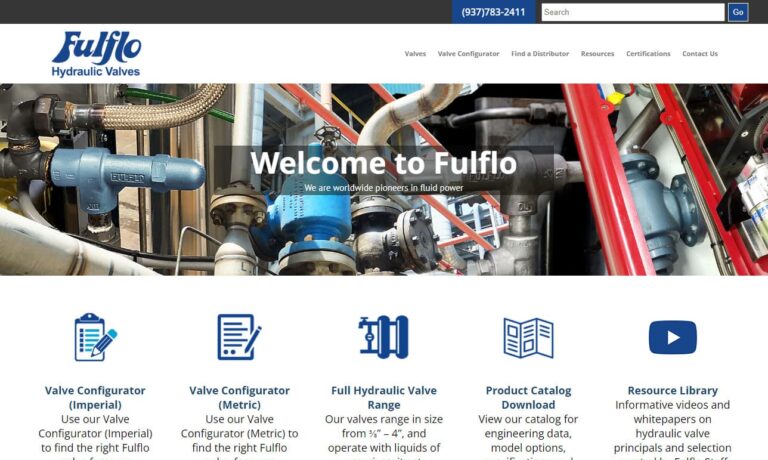
Bermad has been a world wide leader in the manufacturing of high quality hydraulic control valves for 45 years. Bermad’s products are prevalent in the irrigation, water works, and fire protection industries. Bermad is committed to the environment as it maximizes water use efficiency and is constantly upgrading manufacturing methods. Bermad has subsidiaries in Australia, Brazil, China, and Italy.

Doering manufactures valve and pump products for fluid power applications. Our valves include hydraulic flow control valves, gas valves, stainless steel hydraulic valves, hydraulic pressure control valves, hydraulic poppet valves and hydraulic spool valves. Download our product catalog from our site.
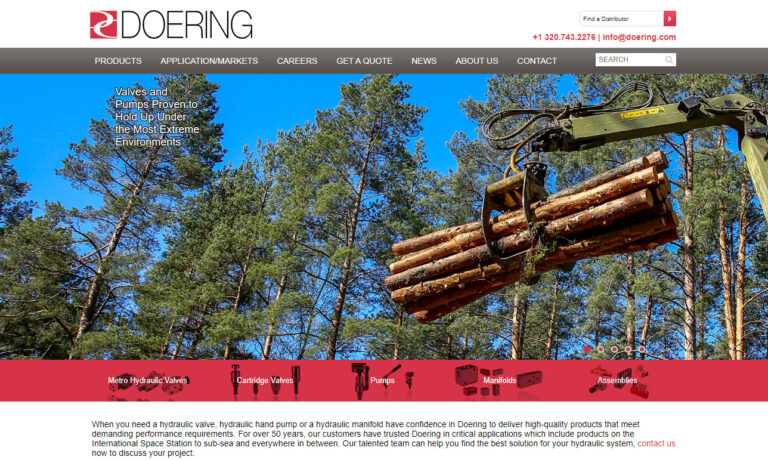
Since 1983, HUSCO International has been a global leader in providing the major international markets with manufactured components. Among our products are a variety of hydraulic control valves and flow rates. Target applications include construction, material handling, agricultural tractors and other general applications as well. ISO 9001:2008 certified.

More Electric Hydraulic Valve Manufacturers
Types of Electric Hydraulic Valves
Servo Valves
Servo valves are high-end valves used to maximize equipment’s performance. A servo valve has a spool overlap of at least 3% in the center position. This means in proportional valves, the spool slides directly within the cast iron valve housing and in servo valves the spool slides inside a hardened steel bushing.
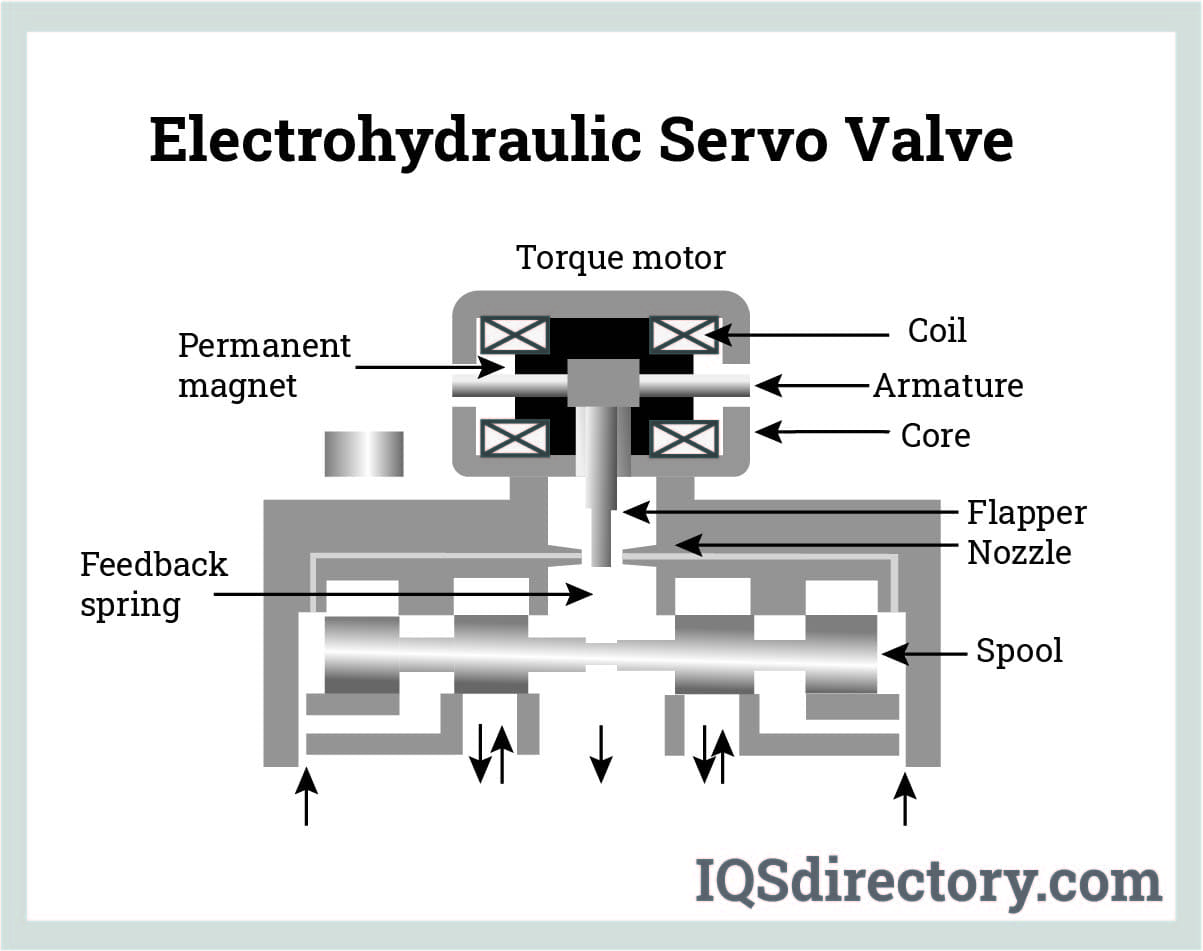
Pressure and Flow Control and Axis Control Valves
Digital control valves (DCV) offer extended control functionality. They provide axis control (ACV) or pressure and flow control (pQ), and pQ valves have a spool position controller that allows them to adjust the pressure of one axis. Axis control valves are capable of performing position, speed, or force control for one axis, such as a cylinder, on their own.
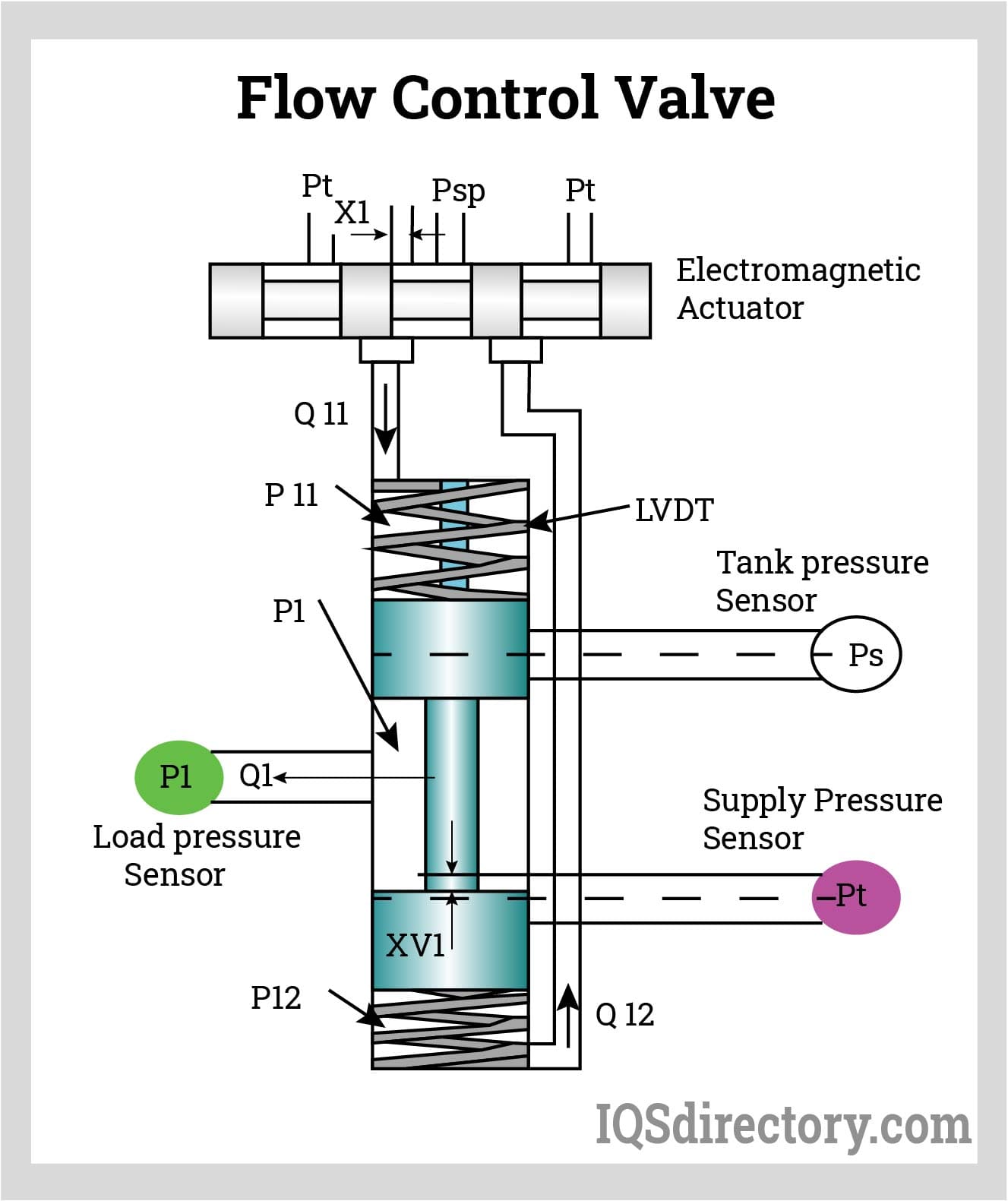
Electrical and Mechanical Feedback Valves
All proportional and servo valves have closed loop spool position controls, hence spool position feedback is necessary. They employ two kinds of feedback: mechanical and electrical. A feedback spring in mechanical feedback (MFB) valves is compressed by the spool deflection and provides mechanical feedback to the torque motor. Onboard electronics are not required for these valves to function. Electronic position transducers are used by electrical feedback (EFB) valves to determine the spool position. All EFB valves require control electronics to function since this signal is electronically sent back. These valves have electronics built into the design of the valve, negating the need for additional controller cards.
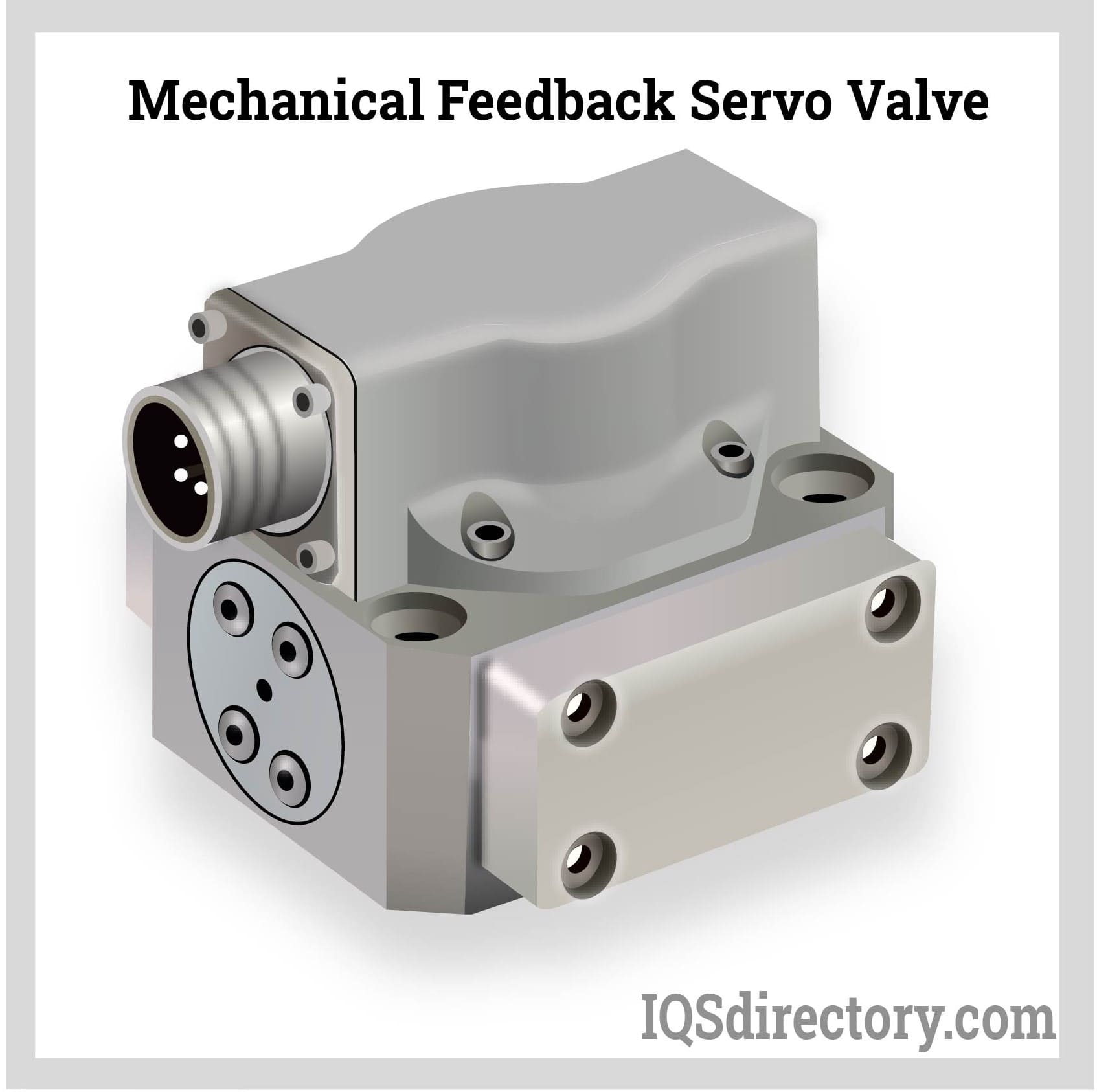
Directly operated valves
In directly operated valves, the spool is mechanically and directly controlled by the actuator. The operating forces have limits to keep the size and expense of these actuators in check. Directly driven valves are restricted to smaller flows and consequently smaller valve sizes since the forces required to move a spool increase with flow and pressure drop. Direct drive valves are powered by a Linear Force Motor.
In pilot operated valves, the primary spool is driven by hydraulics to boost the spool actuation force. Pilot driven valves can achieve very high spool actuation forces by hydraulically amplifying the electrical command signal. Typically, the pilot valve is a smaller, directly actuated valve created specifically to build up large flows.
Nozzle Flapper Operated Valves
Nozzle flapper controlled valves are controlled by hydraulic amplifiers that are activated by a torque motor. Covering a nozzle's opening with a flat plate known as the flapper, the nozzle and flapper mechanism is a displacement-type detector that transforms mechanical movement into a pressure signal. As a result, the nozzle's fluid flow is restricted, and a pressure signal is produced.
It is a widely used mechanical method of building a fluid amplifier with high gain. They were crucial in developing pneumatic PID controllers for industrial control systems and are still frequently used in hydraulic and pneumatic control and instrumentation systems today.
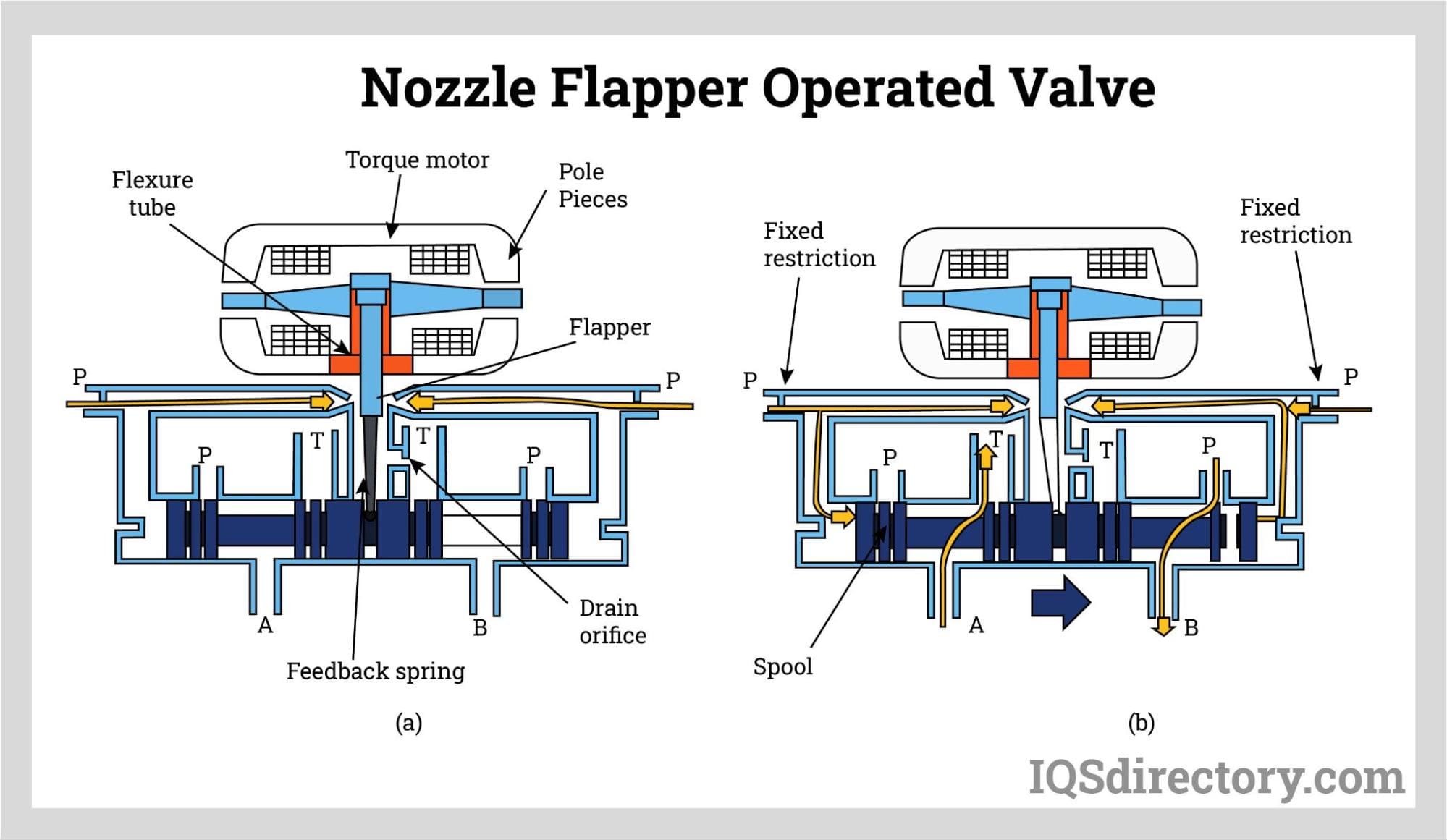
Applications and Benefits
- In blow molding, electric hydraulic valves are used to adjust the wall thickness of the extruded plastic. An electric feedback with a position transducer replaces the role of the mechanical feedback. Integral electronics close the spool's position loop. these valves work well for electrohydraulic position, velocity, pressure, or force control systems with very high dynamic response requirements.
- Fuel flow into a FADEC-controlled turbofan engine is controlled by electric hydraulic valves. The control surfaces of fly-by-wire aircraft are frequently manipulated using electric valves coupled to hydraulic cylinders. A flight control computer that receives commands from the pilot and keeps track of the aircraft's flight controls the signals going to the servo valves.
- There are many different markets and applications where servo and proportional valves are used. From test and simulation tools to offshore and maritime applications, metal forming, wood processing, and plastics machinery.
- Both paper and sheet steel thickness are precisely controlled by valves in paper and steel plants. They regulate all significant and numerous auxiliary operations in plastic injection molding equipment. Additionally, they regulate the process of fuel injection in marine diesel engines as well as the stability of offshore oil drilling platforms in challenging and dangerous conditions.
- Each of these uses calls for precise control over a complicated structure that, in the majority of cases, is exposed to shifting loads that can impair performance.
Choosing the Correct Electric Hydraulic Valve Supplier
To ensure you have the most positive outcome when purchasing electric hydraulic valves from an electric hydraulic valve supplier, it is important to compare several companies using our directory of electric hydraulic valve suppliers. Each electric hydraulic valve supplier has a business profile page highlighting their areas of experience and capabilities, along with a contact form to directly communicate with the supplier for more information or request a quote. Review each electric hydraulic valve business website using our patented website previewer to quickly learn what each company specializes in. Then, use our simple RFQ form to contact multiple electric hydraulic valve companies with the same form.

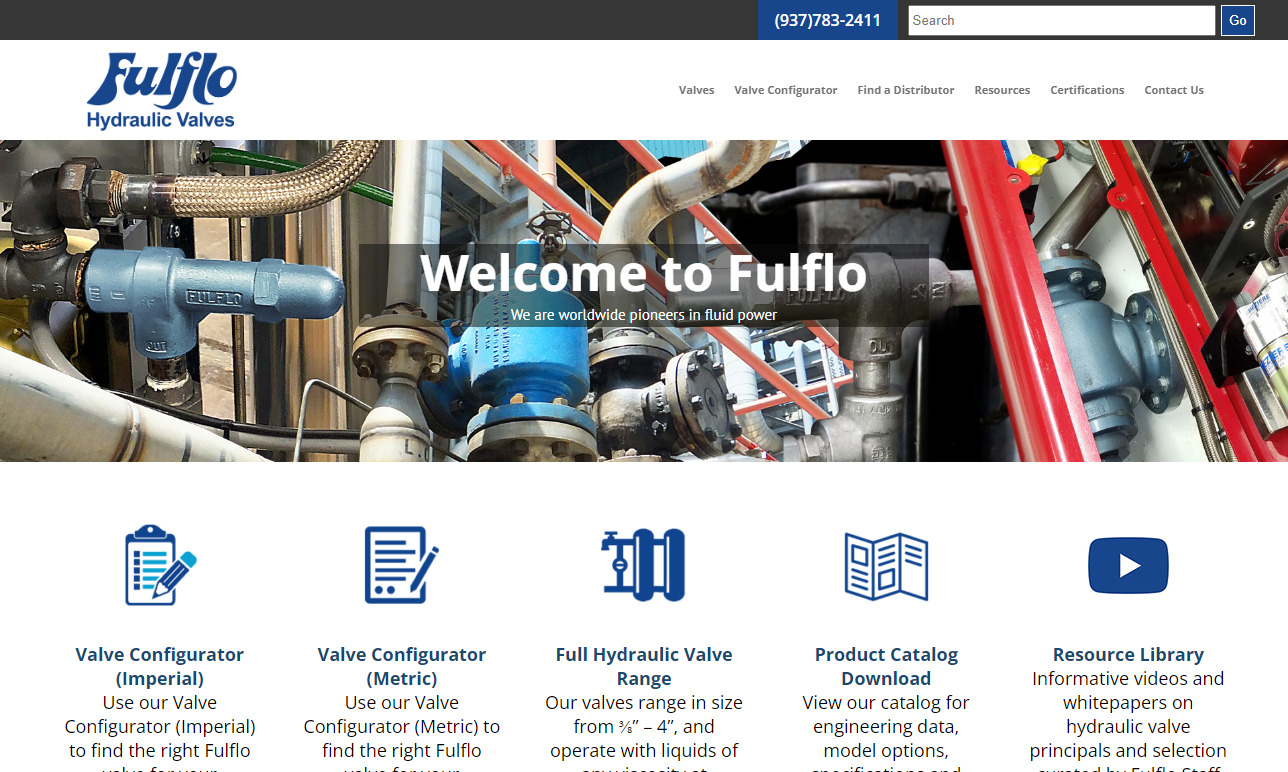

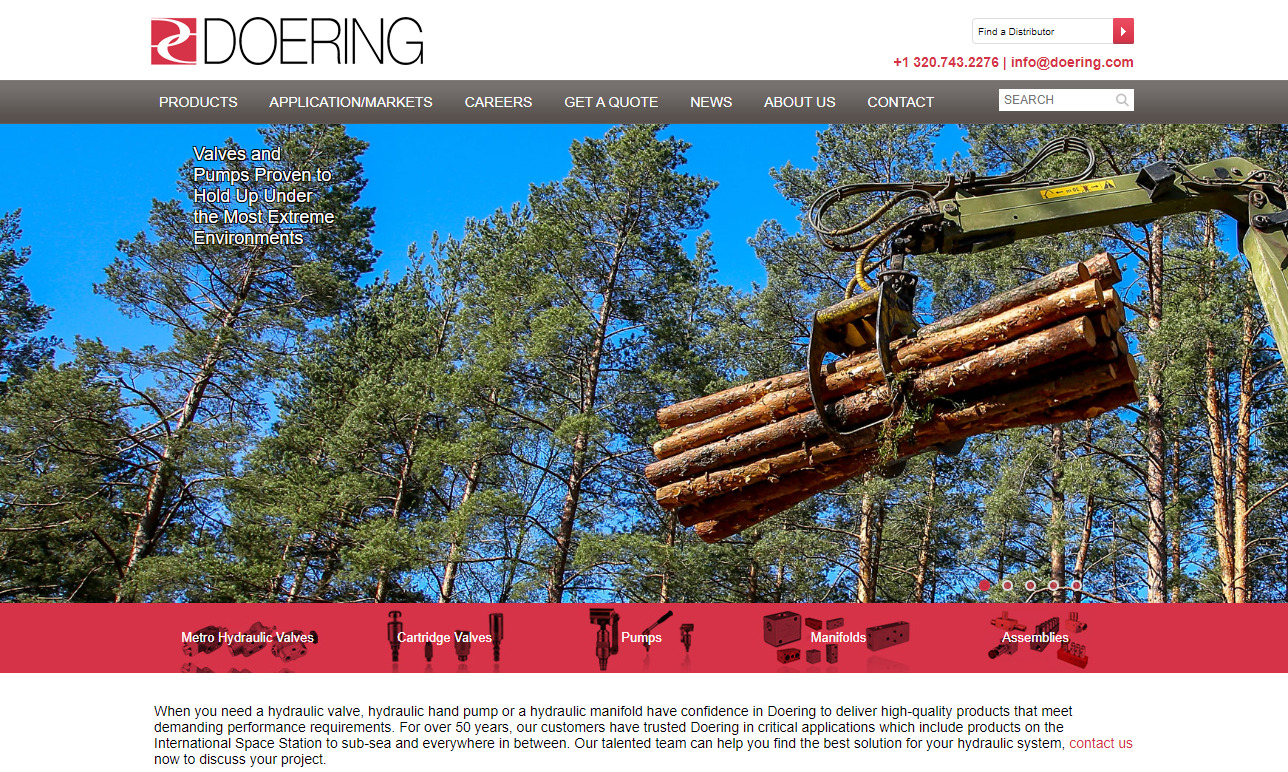

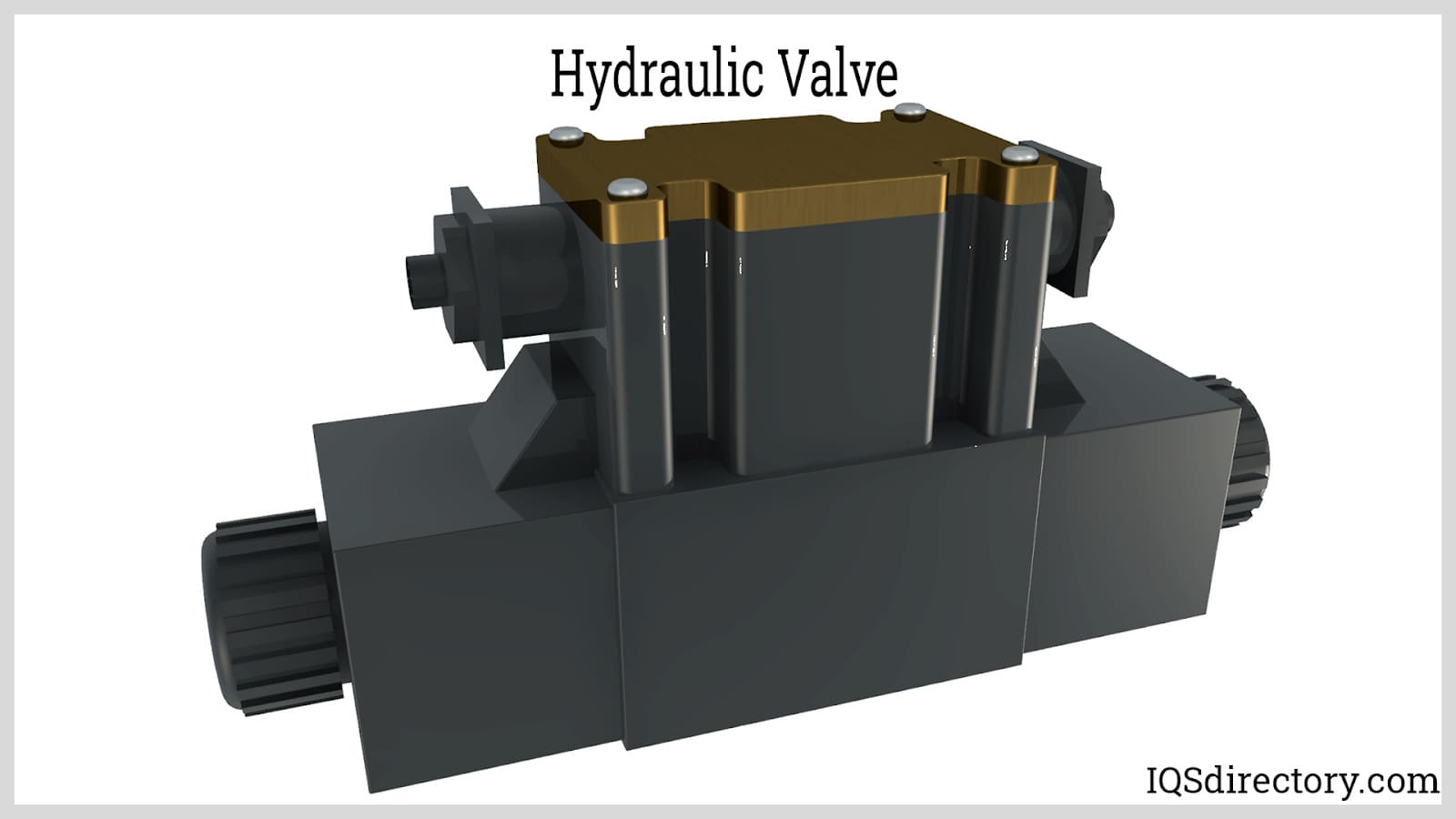
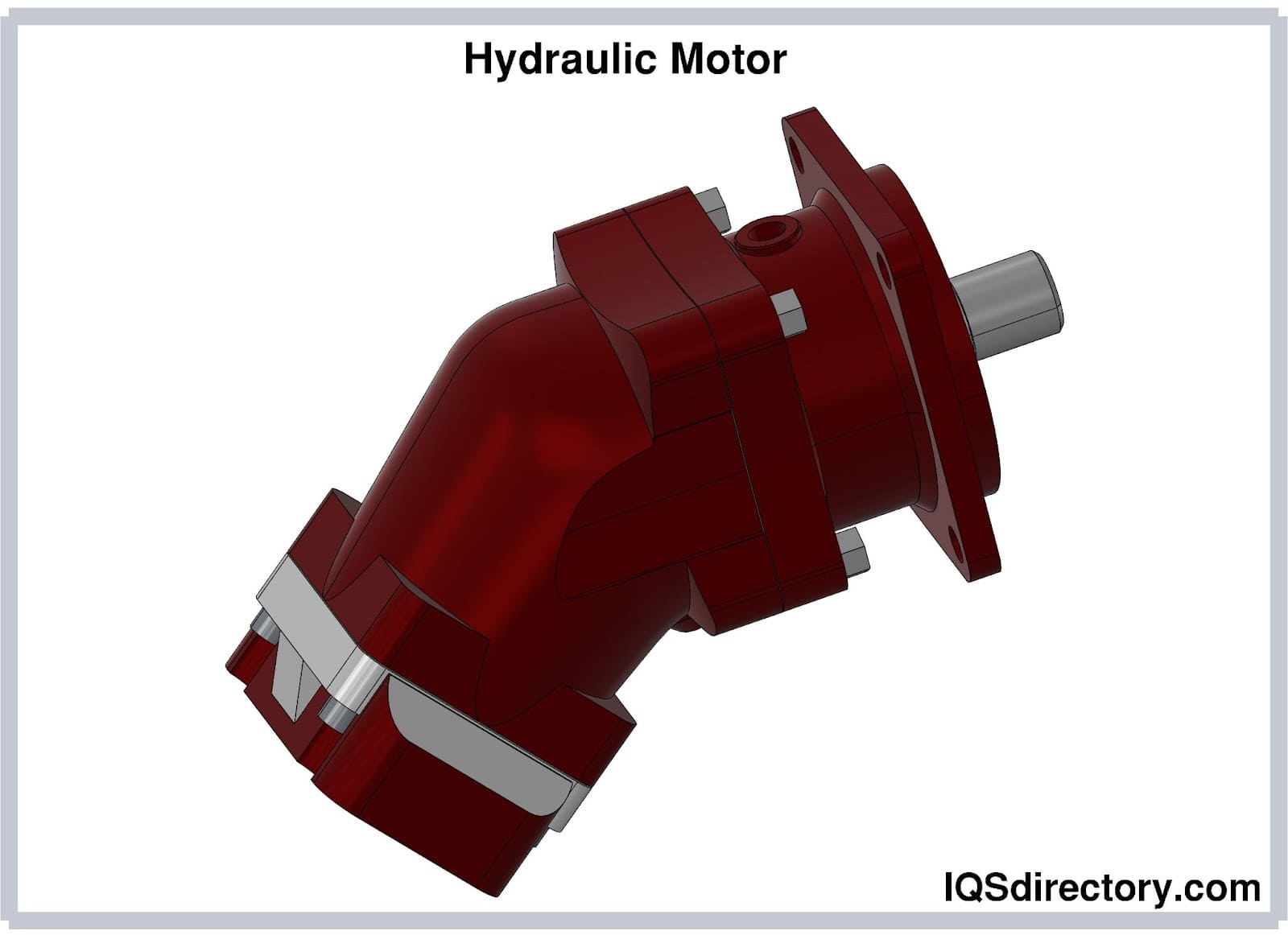
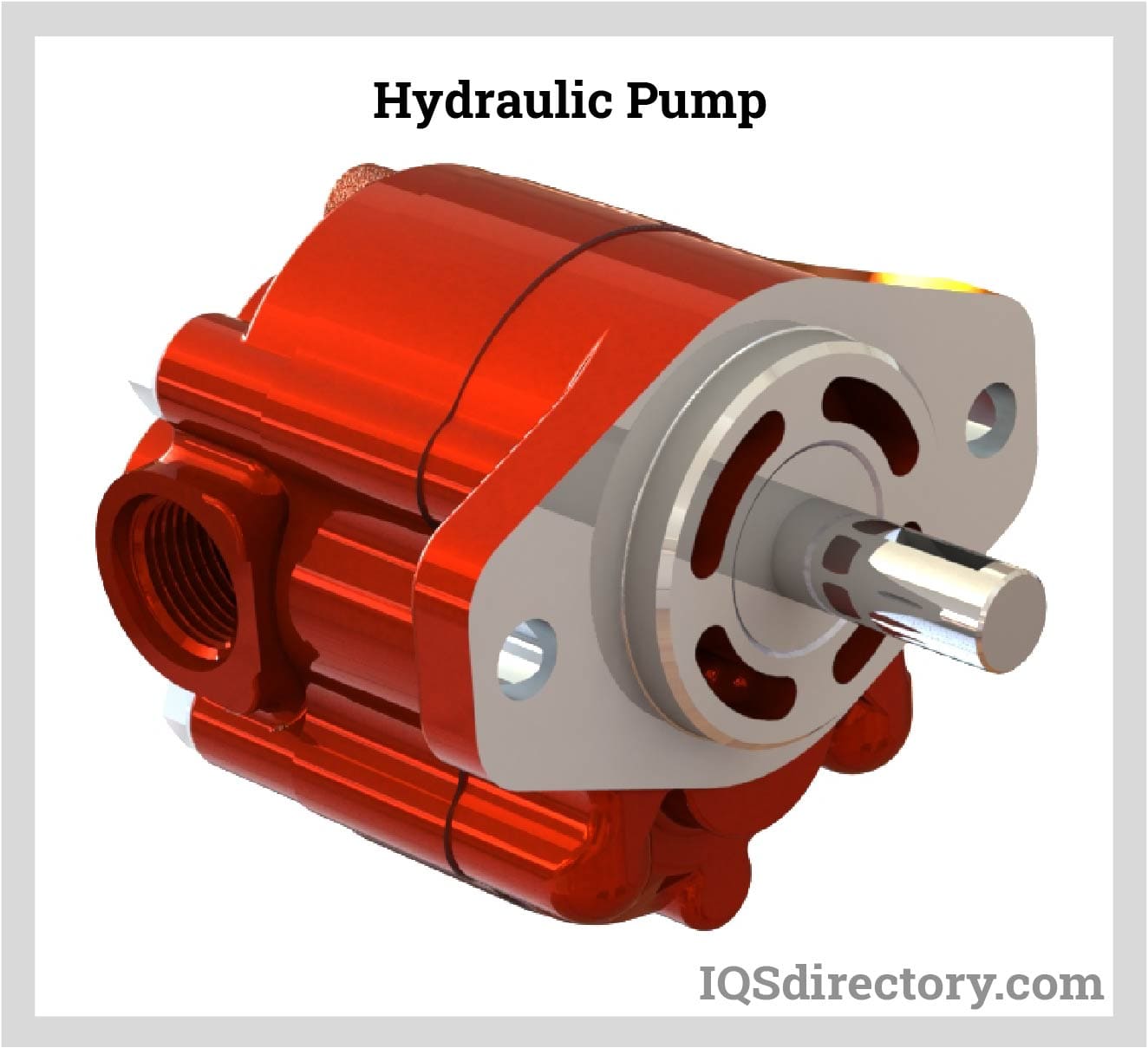
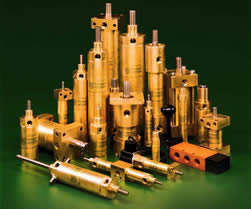 Hydraulic Cylinders
Hydraulic Cylinders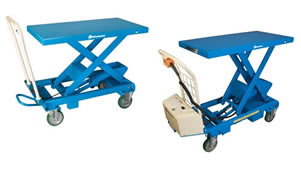 Hydraulic Lifts
Hydraulic Lifts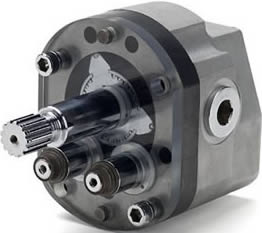 Hydraulic Motors
Hydraulic Motors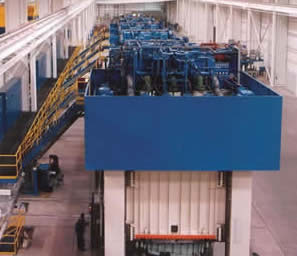 Hydraulic Presses
Hydraulic Presses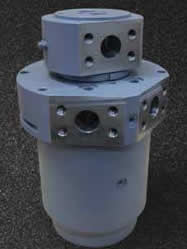 Hydraulic Pumps
Hydraulic Pumps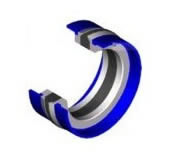 Hydraulic Seals
Hydraulic Seals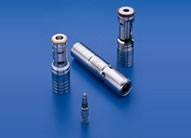 Hydraulic Valves
Hydraulic Valves Castings & Forgings
Castings & Forgings Bulk Material Handling
Bulk Material Handling Electrical & Electronic Components
Electrical & Electronic Components Flow Instrumentation
Flow Instrumentation Hardware
Hardware Material Handling Equipment
Material Handling Equipment Metal Cutting Services
Metal Cutting Services Metal Forming Services
Metal Forming Services Metal Suppliers
Metal Suppliers Motion Control Products
Motion Control Products Plant & Facility Equipment
Plant & Facility Equipment Plant & Facility Supplies
Plant & Facility Supplies Plastic Molding Processes
Plastic Molding Processes Pumps & Valves
Pumps & Valves Recycling Equipment
Recycling Equipment Rubber Products & Services
Rubber Products & Services